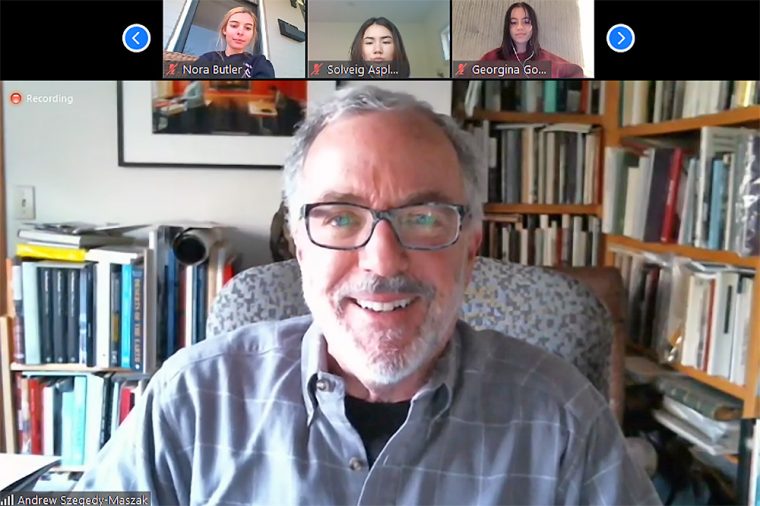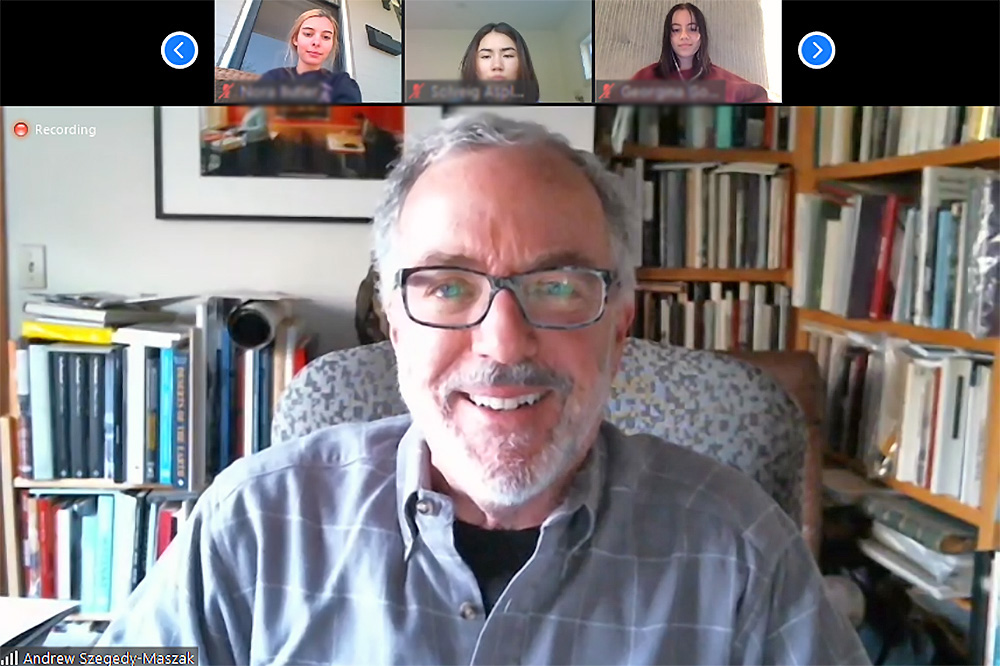Wesleyan Student Assembly Commends Faculty on Distance Learning Efforts


When President Michael Roth announced in mid-March that Wesleyan would suspend in-person classes for the remainder of the spring semester because of the increasing threat of the COVID-19 pandemic, faculty had less than two weeks to prepare their courses for distance learning before classes resumed after spring break. Trying to recreate the immersive Wesleyan classroom experience in a digital format presented a variety of challenges, particularly for faculty who had never taught online previously.
It’s become clear over the last month that faculty have been able to rise to those challenges, and the Wesleyan Student Assembly (WSA) formally recognized their efforts on April 19 with the unanimous passage of a resolution “Commending the Wesleyan Faculty for their Efforts in the Transition Towards Distance Learning.” Chair Jake Kwon ’21 and vice-chair Ben Garfield ’22 of the WSA’s Academic Affairs Committee sponsored the resolution in order to recognize the faculty’s hard work and advocacy for students.
“Faculty are going through a lot of similar extenuating circumstances as students are” in transitioning to distance learning, said Kwon. “This has definitely proven difficult, and I wanted to make sure that the faculty knew how appreciative the students were of their efforts, and that in fact they are not unnoticed.”
The resolution recognizes “the faculty’s efforts to maintain the integrity of Wesleyan’s liberal arts education.” It expresses appreciation for “the empathetic faculty who have provided accommodations for students encountering various challenges surrounding the transition to distance learning and the determined professors who aim to continue providing learning opportunities while being conscious of the various potential stressors that could befall the student body and seek to alleviate additional stress from academic work.”
Kwon noted that while the WSA has passed resolutions in solidarity with many groups on campus, “I do not think we have addressed the entire faculty before in a resolution.”
“Many of my professors have been very understanding about deadlines, and many prioritize student health over academia, which I am so thankful for,” Kwon said of his personal experience with the transition to distance learning. “Some have changed testing formats to accommodate online learning, and many professors had to change their entire course design to allow students to learn at home. For me, I have been fortunate to remain healthy amid the crisis, so I have been able to focus on academia, but it is nice to know that I have a safety net to fall onto if I ever get sick as we finish off the semester.”
Faculty have responded to the resolution with deep gratitude. Sean McCann, chair of the faculty, said that at their next meeting on May 20, faculty leadership plans to ask the faculty to endorse a responding resolution written by Andrew Szegedy-Maszak, Jane A. Seney Professor of Greek, Professor of Classical Studies. It states: “We, the Wesleyan faculty, collectively express our gratitude to you, our students. During the immense upheaval in all our lives and our difficult transition to online teaching and learning, you have been patient, thoughtful, good-humored, and responsive. We deeply appreciate your good will and engagement, and we will do our best to ensure that you continue to get the excellent education you deserve.”
“Personally, I was deeply touched by the WSA resolution, and I know many other Wes faculty were as well,” said McCann. “It was such a very kind and thoughtful thing to do.
“In general, I think many of us have found teaching-by-Zoom a trying experience, and a pale substitute for in-person learning. But I’ve also just been very grateful for the opportunity to work with students, even if virtually. Seeing them pop up on the computer screen is one of the best parts of my day and always a mood lifter—very welcome indeed in a time that can seem so bleak and isolating.”
Bill Johnston, John E. Andrus Professor of History and academic secretary, echoed this sentiment. “I tell my students that my meetings with them are the highlights of my week, and I really mean that. Many write to say that they do find the virtual classes challenging, but I very much appreciate the efforts they are making to learn through Zoom meetings, emailed papers, and Moodle posts. Not perfect, but it is working.”
McCann noted that the faculty will also be expressing their gratitude to staff, administrators, and librarians through a tandem resolution.

